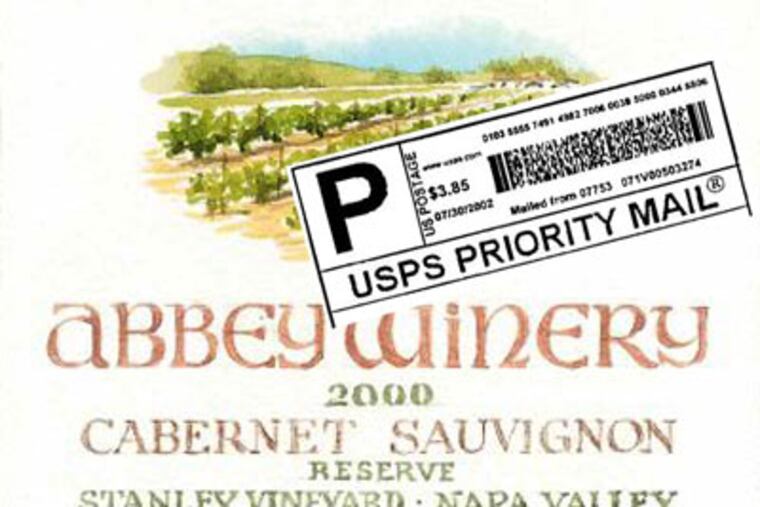Pennsylvania Senate eyes vote on direct wine shipments
HARRISBURG - Another year, another bill proposing to let Pennsylvania residents have wine shipped directly to their homes from out-of-state wineries.

HARRISBURG - Another year, another bill proposing to let Pennsylvania residents have wine shipped directly to their homes from out-of-state wineries.
This time around, though, wine lovers and legislators supporting the cause are cautiously optimistic that 2012 could finally be the year the measure becomes law.
The state Senate is poised to vote Wednesday on legislation that would allow direct shipments from out-of-state wineries to a Pennsylvanian's doorstep. By all accounts, the bill is expected to pass, though its fate is murkier in the House, as it is with Gov. Corbett.
"It's time," said Sen. Jane Earll (R., Erie), the bill's sponsor. "This issue has percolated long enough, and to me it's embarrassing that we haven't been able to bring this to a resolution for so long."
The legislation in some respects has been in the works since a series of court rulings began flowing from a landmark 2005 U.S. Supreme Court decision on interstate wine sales. In short, the justices ruled that all states must treat out-of-state wineries the same way they treat in-state wineries.
Pennsylvania generally prohibits out-of-state wineries from shipping directly to the state's residents - but it does allow smaller in-state wineries to do so. The Supreme Court ruling meant the state's shipping laws were unconstitutional and had to be changed.
This being Pennsylvania, where liquor laws date back to Prohibition and any proposed change is cause for a legislative impasse, the issue was left to wither on the vine.
After the 2005 ruling, the Liquor Control Board came up with an interim fix until the legislature could agree on a permanent solution. The LCB allowed some smaller out-of-state wineries to ship directly to Pennsylvania consumers. But many wineries were too big to qualify, and others did not want to participate until the state had passed a firm law.
The result was frustration, said Sen. Jim Ferlo (D., Allegheny), who supports the current bill and has championed similar legislation in the past.
"Often times," Ferlo said Tuesday in an interview, "folks who visit Napa Valley or Sonoma Valley get excited about a wine and want to order it for back home, only to find out that they can't."
But with proposals to privatize the LCB a frequent topic of discussion over the last few years, changes to liquor laws that once were considered untouchable are now in the realm of the possible. Even the LCB has said it supports direct shipping, contrary to its hands-off stance of the past.
The bill now before the Senate seeks to even out the playing field by allowing out-of-state wineries to register with the LCB for a license and ship directly to Pennsylvania consumers.
Under the bill, the wineries would be required to collect and remit the state's 6 percent sales tax, as well as the 18 percent so-called Johnstown flood tax that the LCB charges customers at its stores.
And therein lies one potential legislative quagmire.
The Corbett administration, a proponent of privatizing the liquor system, warned Wednesday that the measure would cost Pennsylvania precious revenue: the LCB, aside from imposing the sales and Johnstown flood taxes, also marks up its product 30 percent when it places it on retail shelves.
Some senators said privately that their counterparts in the House had similar worries.
And on the flip side, many vintners think the state's adding on of this tax, that tax, and the other tax would make their wines so expensive that no 21st century consumer with any sense would shell out the cash.
Steve Gross, director of state relations for the Wine Institute, which represents 1,000 California wineries, said the LCB applies its markup and taxes on the wholesale price. Wineries, on the other hand, are selling their wines at retail value - so, by Gross' math, imposing all those extra charges could shoot the price of home-delivered wine into the stratosphere.
Other states, Gross said, have opted to ask wineries to charge a standard percentage on sales.
"If you pass a bill that no one is going to use, then everyone is going to be frustrated," he said Tuesday in an interview.
Ferlo, for one, hopes there can be a compromise.
"Hope springs eternal," the legislator said.